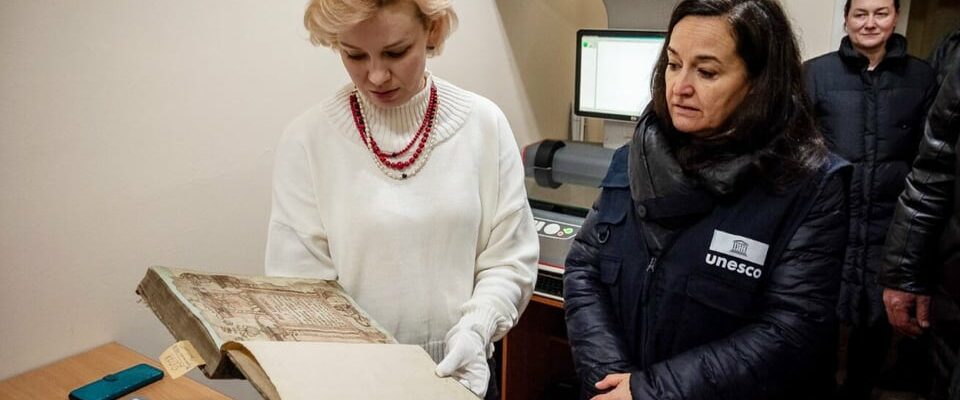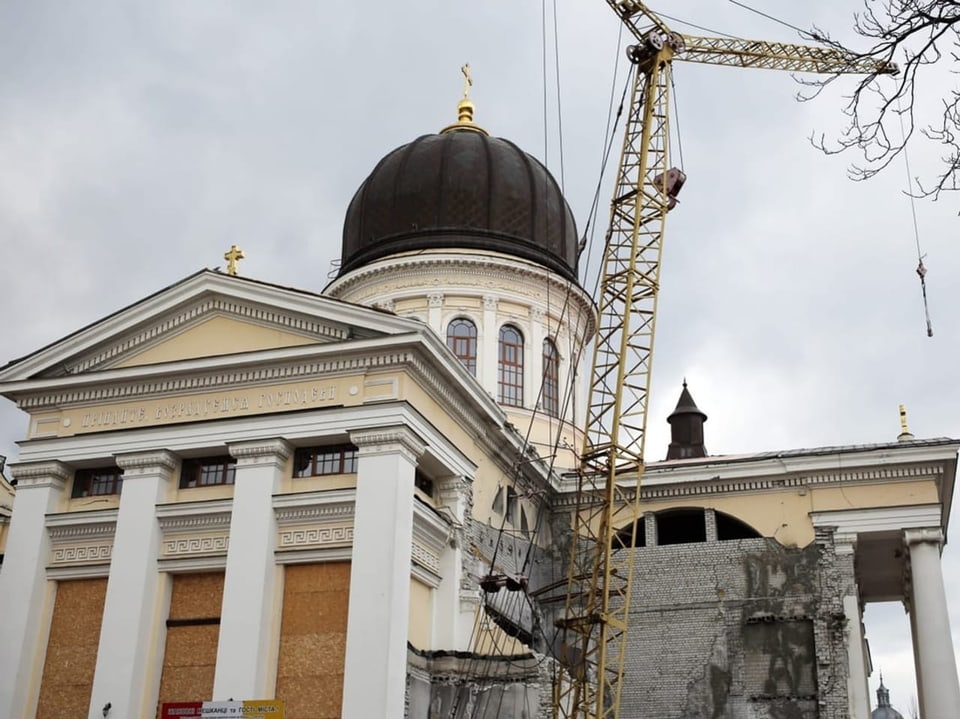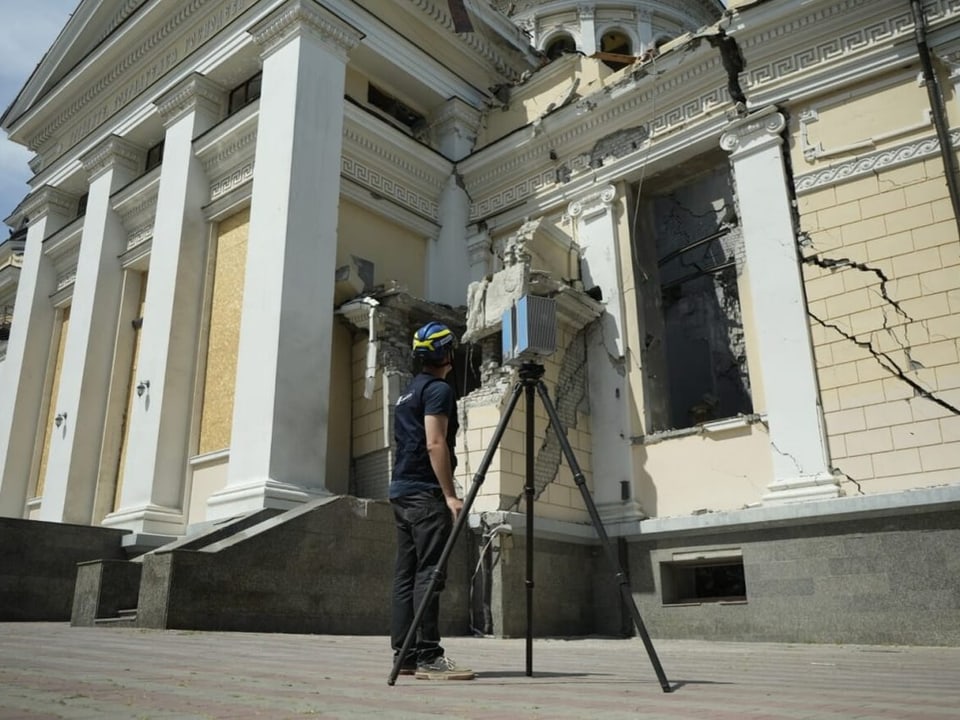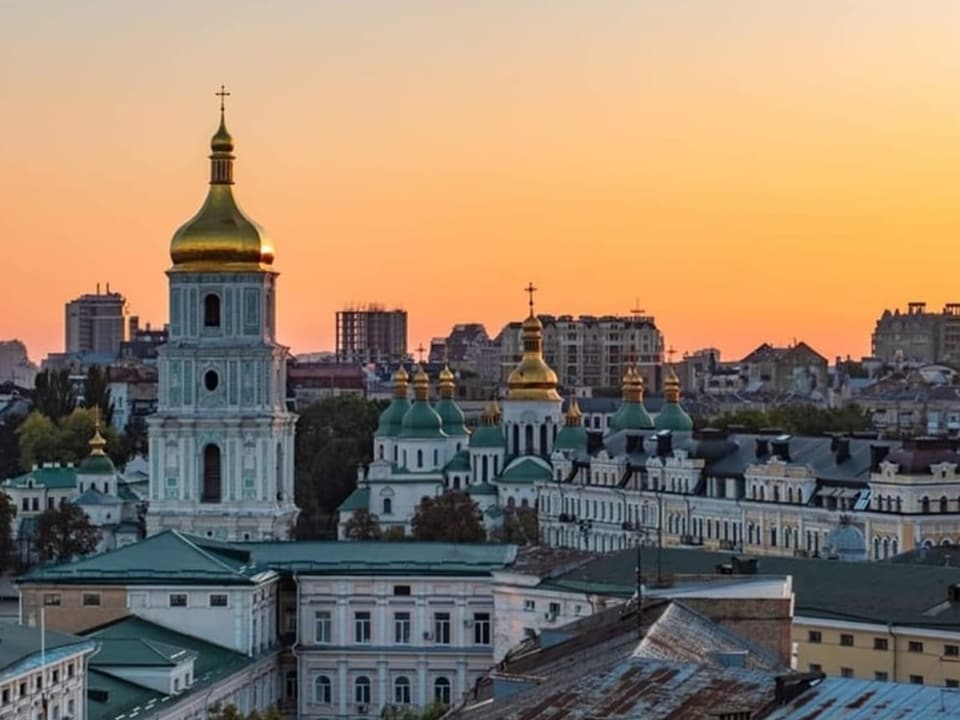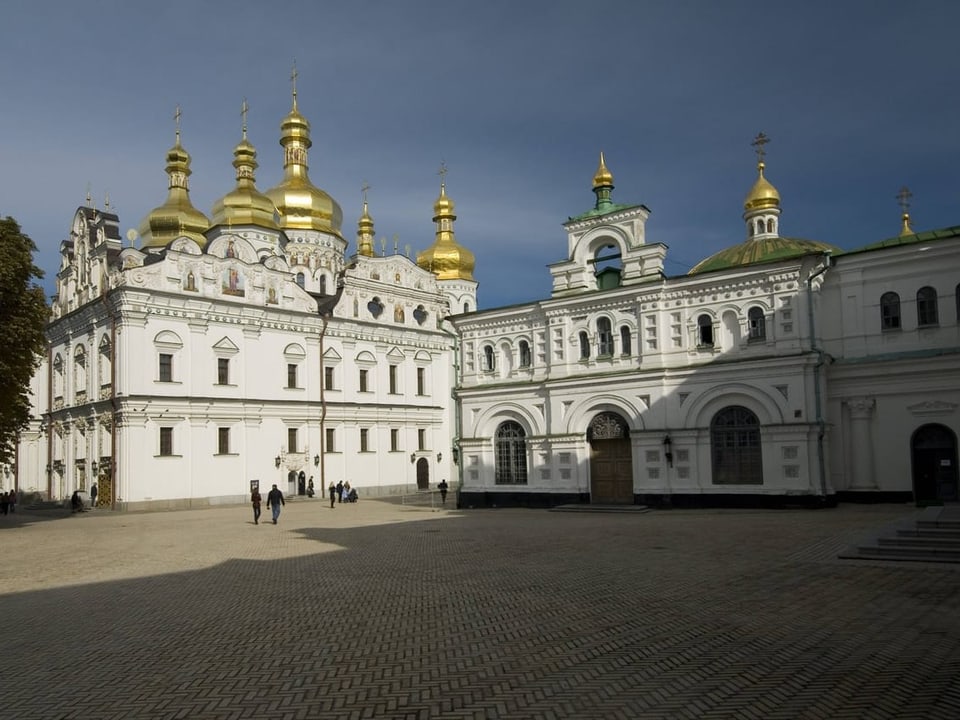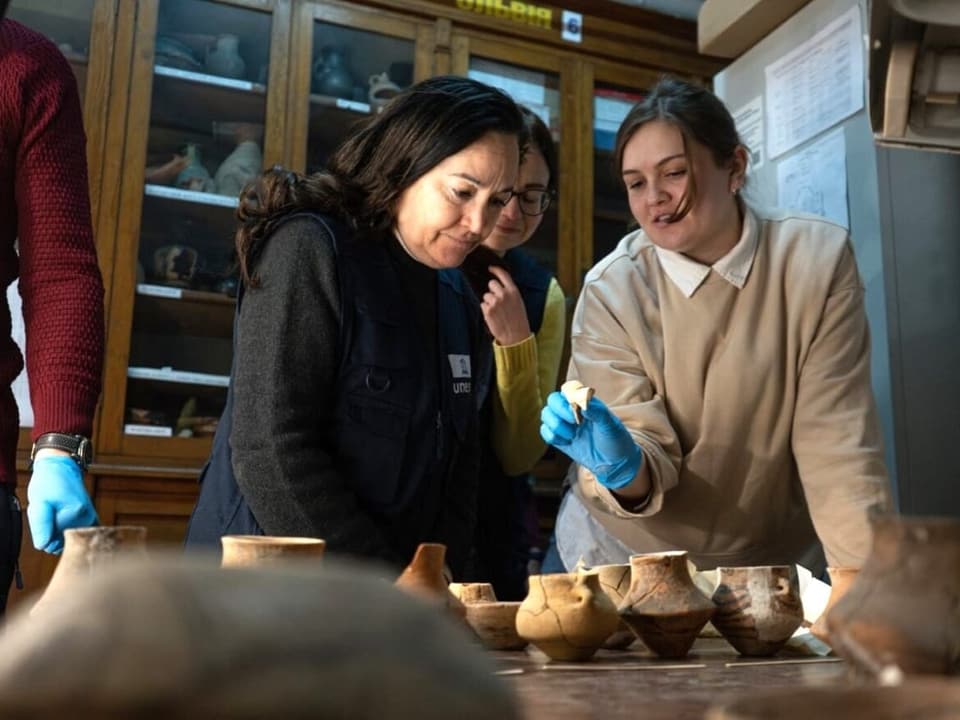“We have regular air raid alerts every day. Like the citizens of Ukraine, we have to go to shelters, both day and night,” says Chiara Dezzi Bardeschi. “It’s difficult.”
The Italian heads the UNESCO office in Kiev, Ukraine. The UN cultural and educational organization has been present in the war zone Ukraine since September 2022. They protect threatened cultural assets – knowing that over 10,000 civilians have already died in the war.
Chiara Dezzi Bardeschi, her team of twenty and the Ukrainian experts work here under difficult conditions. But she doesn’t complain. Because she sees every task that she and her colleagues complete on site as a reward because something has been achieved again. Great commitment is necessary because they have big goals and a lot of work.
Verify damage
There is certainly no shortage of work for the UNESCO mission in Ukraine. Dezzi Bardeschi and her employees verified damage and destruction at 342 cultural sites using satellite images and on-site visits. “These are places of historical and cultural importance: museums, monuments, archives, libraries and also religious buildings.”
Legend:
Chiara Dezzi Bardeschi (right) and her team help with the digitization of antiquarian treasures in Kiev.
UNESCO
UNESCO estimates the damage to this cultural infrastructure alone at 3.5 billion US dollars (approx. 3 billion CHF). In order to make the cultural sector functional again, at least nine billion US dollars (approx. 7.9 billion CHF) are needed over the next ten years.
Endangered cultural heritage
Eight places in Ukraine are on the UNESCO World Heritage List. Three of them are now on the list of acutely threatened cultural heritage: the Old Town of Lviv, the St. Sophia Cathedral in Kiev and the Pechersk Lavra in Kiev-Pechersk.
“We are very concerned because attacks on cultural institutions have increased in 2023,” says Chiara Dezzi Bardeschi. She points, for example, to the site of the Polytechnic University in Lviv, which was badly hit in July 2023. She also highlights the destruction in Odessa. Repeated rocket attacks starting in July 2023 would have devastated over 50 important buildings, including the early 19th century Transfiguration Cathedral.
UNESCO is currently working on the roof of this cathedral – as well as on the music school in Odessa, the literary museum there, the museum of oriental art, the art museum and the archaeological museum. The list of damaged cultural institutions does not and does not want to end. And: “It’s not just individual buildings that suffer from the attacks, but the entire urban network.”
In total, UNESCO, in collaboration with the Ukrainian authorities, has so far identified 5,000 cultural and tourist sites that the Russian army has devastated with its attacks. According to the 1954 Hague Convention on the “Protection of Cultural Property in the Event of Armed Conflict,” they are actually under special protection. The war damage was particularly severe in the Donetsk, Luhansk, Kharkiv and Odessa regions.
Support artists
In addition to the destruction of buildings and infrastructure, the cultural industry’s income has collapsed, says Dezzi Bardeschi. “We estimate the loss of income in the creative sector to be more than 19 billion US dollars (approx. 16.7 billion CHF). Professionals have lost their lives or lost their jobs, had to leave the country or are fighting at the front.” The cultural sector no longer has any resources.
UNESCO also works with artists in Ukraine to keep cultural life somewhat alive. Now, during the war, and for later. Because, says the head of UNESCO in Ukraine: “Artists, the arts are an important flywheel for the resilience of society. They bring people together.” This exchange is important because it represents the strength of the community and the strength of all of us.
From technical assistance to training
Unesco is active in a variety of ways in Ukraine: for example, in cooperation with local forces, it provides technical assistance to damaged structures. It supports, for example, building repairs or creating emergency roofs over damaged churches. She also documents important buildings with a 3D scanner in order to record their intact condition for all eventualities.
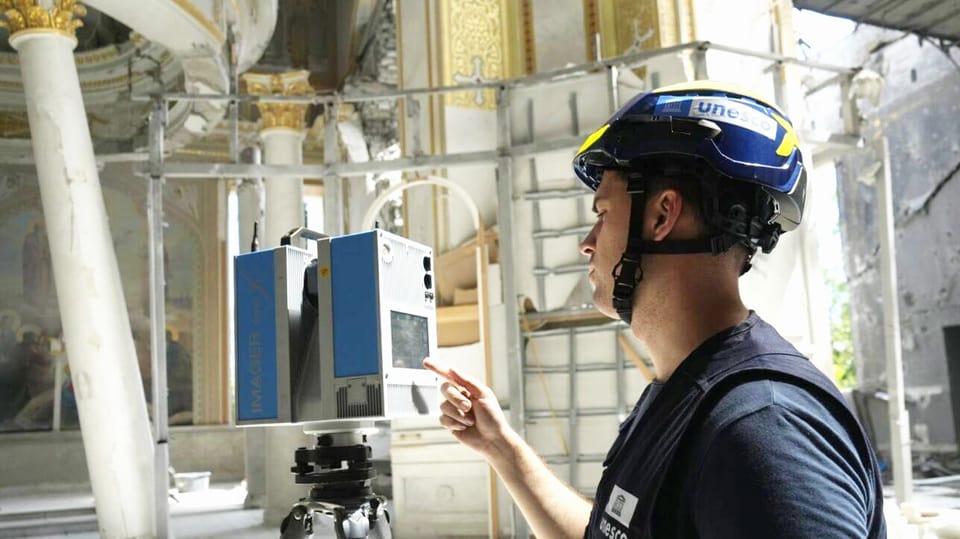
Legend:
The UNESCO employee documents the interior of the church using a 3D scanner.
UNESCO
«Documenting cultural heritage is one of our central tasks. We also intervene in an emergency to protect a damaged building from further destruction, for example due to the weather.” They also work preventatively: for example, they protect monuments that are in the open air.
It is also an important task to train the staff of cultural and educational institutions, especially to prevent risks.
Maintain education
But UNESCO is not only active in protecting cultural assets. The organization also places great emphasis on education, at schools of all levels. «We are working to ensure the continuity of education in this difficult time of war. We do this by facilitating physical access to knowledge and teaching.”
For example, they are rebuilding school rooms and organizing shelters so that pupils and students are safe during the attacks, says the head of the UNESCO office.
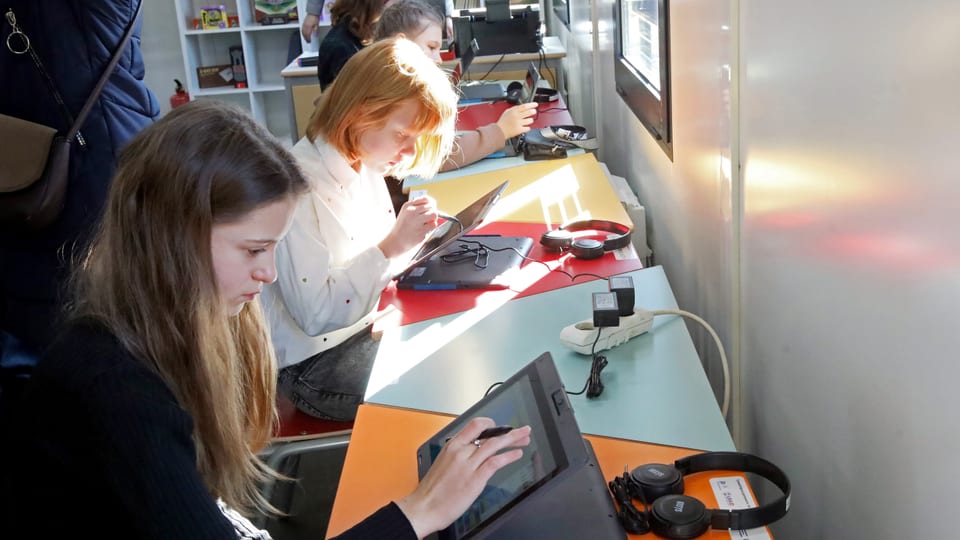
Legend:
Students work on laptops and tablets in the first modular education room. The village school of Zahaltsi in the Kiev region was badly damaged by shelling by the Russian army.
Getty Images / Volodymyr Tarasov / Ukrinform
Chiara Dezzi Bardeschi and her team are also working on ensuring that classes can take place online. For example, they distributed over 50,000 tablets to teachers and over 11,000 to students. “Especially in regions that are closer to the conflict zone and where schools are closed.”
For a peaceful future
Mental health and overcoming war trauma also fall within the remit of the UN Organization for Culture and Education. It is important that experts reach as many children as possible. Keeping them in school is essential, also so that they are not left alone with their bad experiences.
Finally, Dezzi Bardeschi also mentions the journalists. They are trying to be protected so that they can continue to provide information about the war – even in more remote, isolated regions.
These are huge tasks. Chiara Dezzi Bardeschi knows what she is talking about. In her 22 years at UNESCO, she has worked in Central Africa, Lebanon, Libya, Iraq and Sudan, among other places.
There is a great motivation behind the work of Chiara Dezzi Bardeschi and her team: to ease the situation for the children in Ukraine, the young people, the entire society tormented by war and to set the course for a good life in a peaceful future.
